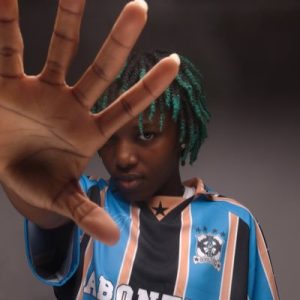Another docuseries gives watchers a personal glance at the lives and battles of K-pop stars, investigating the genuine expense of making it in South Korea’s merciless music industry.
Apple TV+’s “K-Pop Icons” follows Jessi (Jessica Ho), a Korean American rapper fashioning another way subsequent to leaving “Gangnam Style” craftsman Psy’s record mark; young lady bunch Blackswan, on the journey for worldwide fame yet put off by relational struggles; and new kid on the block Cravity, a nine-part teeny-bopper group attempting to become famous in the wake of appearing during the Coronavirus pandemic.
While Jessi has been on the Korean music scene since delivering her presentation single in 2005, Cravity is a showy novice attempting to cut out its own style and space in a jam-packed market. Blackswan has existed for over 10 years with various individuals and names, however is attempting to find its direction in its ongoing cycle, which advances as the show creates.
South Korean social products have detonated throughout the last 10 years, with super-bunches like BTS and Blackpink besting worldwide music graphs and K-show series accomplishing mass prevalence on streaming stages.
Following the entertainers as they leave on world visits, share profound minutes and go through difficult hours-long instructional courses, the new show offers knowledge into the exceptionally aggressive, multibillion dollar industry that holds its young stars to incredibly elevated requirements.
K-pop symbols, large numbers of whom start preparing as youthful teenagers, are frequently exposed to serious tension from their severe administration, a work culture that has been connected to a psychological well-being emergency in the business. A few K-pop stars have taken their own lives as of late, provoking floods of pain from fans.
Emotional well-being battles
One of the significant storylines focuses on the contention between Blackswan individuals Leia (Larissa Ayumi Cartes Sakata) and Fatou (Fatou Samba), which starts when Leia posts via virtual entertainment that she is exhausted during a party at Fatou’s family home after the gathering’s most memorable show in Brussels.
Leia later says she found the get-together hard in light of the fact that she missed her own family back home in Brazil, a battle she examines finally all through the series. She likewise addresses her downturn, and the shame that accompanies talking straightforwardly about psychological well-being.
“I realize I’m wiped out,” the Brazilian vocalist said. “Here in Korea, melancholy isn’t a disorder.”
In another weak second, a profound Jessi talks about the penances that accompany the work, especially as far as focusing on work over connections.
“At the point when I return home (to) Korea, I return to a vacant house,” Jessi tells watchers. “It’s so desolate. I thought this was a lovely dream, yet it wasn’t.”
The series likewise archives the K-pop industry’s new endeavors to expand the class’ worldwide allure by selecting unfamiliar ability.
In June, South Korea’s money service declared that the nation would before long send off another visa plot, called the “K-Culture Preparing Visa,” for outsiders who need to prepare in K-pop moving, movement and displaying.
Having begun as a Korean-just band, Blackswan’s steadily developing setup is today only comprised of abroad conceived individuals.
Gabi and Sriya beat huge number of young ladies to become Blackswan “students,” to a great extent because of their identities as indicated by Philip YJ Yoon, overseer of DR Music, the organization that deals with the gathering.
Gabi’s nation of origin, Brazil, is one of K-pop’s greatest business sectors outside South Korea. Also, India, where Sriya is from, is the world’s most crowded country — and some place K-pop is beginning to make advances.
The ladies go through a half year of backbreaking preparation in Korean language, rap, dance, and much else, testing their actual capacities, however their psychological versatility too.
Names likewise face difficulties while selecting unfamiliar K-pop stars, as indicated by Yoon Deung-ryeong, DR Music’s organizer and Chief – one of them being the looser reins expected by musicians.
“With other K-pop gatherings or young lady gatherings, the organization vigorously controls the individuals. On the off chance that the organization says ‘don’t battle,’ they won’t battle,” he says in an early episode, alluding to the contention among Leia and Fatou.
“In any case, with a worldwide gathering, everybody’s language, culture and the manner in which they put themselves out there is unique. Thus, it doesn’t seem OK to attempt to control them how Korean gatherings are controlled.”
Elevated expectations
One more subject in the show is the self-perception norms generally K-pop symbols should stick to, and the drastic actions expected to accomplish it. The stars every now and again talk about how little they eat and the amount they train, even as their folks express concern.
Gabi and Sriya are both put on eats less carbs when they start preparing – Gabi to get more fit, Sriya to acquire it.
Somewhere else, Cravity singer Wonjin says that when he originally tried out for his diversion organization, Starship, he was told to get in shape, so he just ate one egg a day for quite a long time, shedding 15 pounds.
These harder scenes are mixed with snapshots of levity: the endearing kinship among Gabi and Sriya, a contacting embrace among Fatou and her mom, the fraternity between the Cravity individuals, the fervor of fans and the craftsmen’s super charged exhibitions.
Blackswan’s Fatou informed CNN in an email that recording the series was “liberating on the grounds that we had a source for our suppressed feelings in general.”
“I felt like the camera was my specialist,” added Sriya.
Blackswan’s individuals said they trusted the series would acculturate K-pop craftsmen in watchers’ eyes.
“We are flawed, and we go through similarly however many difficulties as any other person,” said bunch part NVee, likewise by email. “In any case, we actually persist due to our adoration for music.”
“K-Pop Icons” is accessible on Apple TV+ from August 30.






